-
Improving Waste Management Strategies at Your Restaurant
If you’re interested in making your restaurant greener, you should look into improving your waste management, recycling, and waste disposal in Atlanta . A comprehensive and effective waste management program is key to ensuring that you save money and protect the environment. Here are some ways that you can improve the waste management strategies at your restaurant.
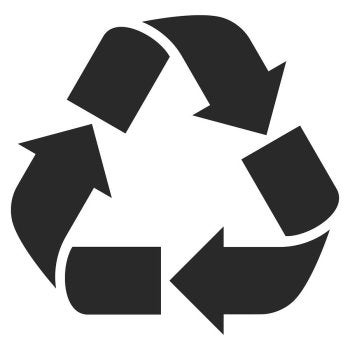
Sustainability and Zero Waste Initiatives
The best and most sustainable waste management program is one that minimizes your environmental impact while reducing your waste management and waste disposal costs. Your waste management company should focus on reducing, reusing, and recycling whenever possible. You can not only reduce the cost of your waste disposal, but also reduce the amount of waste that is generated in the first place. One of the ways that you can do this is by implementing a zero waste initiative. A zero waste initiative is a commitment to reduce the amount of waste that is sent to a landfill for waste disposal. This is achieved by investing in single-stream recycling and organics recycling.
Single-Stream Recycling
Recycling centers that offer single-stream recycling do not require companies to sort their recyclables into separate recycling bins or dumpsters before pickup. Instead, all recyclables can be put into the same recycling bin or dumpster, and they are then picked up by your waste management company and sorted at the recycling center. This makes it easier for employees and guests to participate in your restaurant’s recycling program, and it also saves the company money and labor trash removal, junk removal, and waste disposal.
Organics Recycling
One of the most voluminous types of waste that restaurants produce is organic waste, or food waste. Rather than throwing food and food byproducts away to be sent to a landfill, you can participate in your recycling center’s organics recycling program. Organic waste will be composted and then used as fertilizer and soil nutrients. Food waste that can be composted includes fruits, vegetables, meat, poultry, seafood, animal bones, shells, bakery items, eggs, paper egg cartons, milk, juice, paper juice cartons, plants, cut flowers, coffee grounds, coffee filters, tea bags, paper products, ice cream, yogurt, and cottage cheese.
-
What You Need to Know About Industrial Waste Management
Our society relies on industrial manufacturing to produce the many appliances, materials, and other items that we use on a day to day basis. As the owner or operator of an industrial company, it is your responsibility to make sure that your business is operating in accordance with industrial waste management regulations. A company that specializes in waste near Atlanta will be able to help you reduce, reuse, recycle and ensure that any environmentally toxic materials that are created in your facilities receive proper disposal. Let’s explore some important guidelines that every business owner should know about industrial waste management.
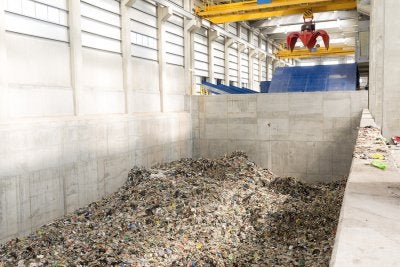
Waste separation is necessary.
While it may be tempting to save time and energy by disposing of your waste materials in the same container, it is actually very important to create a waste separation plan for your industrial operation. Metals, plastics, and organic materials decompose at very different rates. By taking the time to separate waste by type, you can make sure that each type of material heads to the correct disposal facility.
Toxic materials should be decontaminated or contained.
Certain industrial processes may create waste materials that have a toxic effect on the environment. When you are creating an industrial waste management plan, you will want to work with a team of professionals to create a solution for decontaminating or containing your hazardous waste. Improper disposal of harmful substances is a very serious crime that can impact the future success of your business as well as the environment around you.
Recycling and recovery can help reduce costs.
Your industrial waste management plan can also include provisions for recycling or reclaiming materials. If you work with metals, for example, you may want to repurpose scrap metals for other uses. Recycling is a great way to reduce your overall waste output, while also helping to cut down on your overall expenses. If you have questions about how to create an industrial waste management plan, be sure to contact a waste disposal company that serves your area.
-
A Look at Waste Management Planning for Senior Living Facilities
Like many organizations, senior living facilities can generate a significant amount of waste. However, you are likely to find that there are ways to streamline and reduce the costs of your waste disposal system. If you are looking for better strategies for waste management in Atlanta, consider the following in your planning:
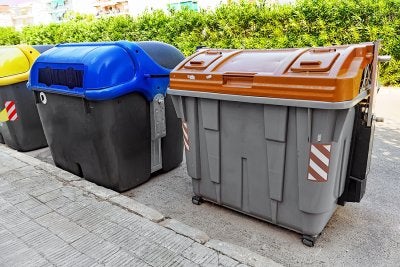
Taking Advantage of Recycling Opportunities
Incorporating a recycling program into your waste management system can give your establishment a greener image, and can also save you money on taxes and reduce your waste disposal costs. Your senior living facility probably goes through a significant amount of materials and supplies that can be easily recycled. When you participate in a local recycling program, your facility will be provided with recycling bins to place where you deem appropriate. Having the opportunity to recycle can boost the morale of your residents and staff, and the use of recycling bins can cut down on the facility’s waste generation.
Considering Alternatives for Food Waste Management
The amount of food waste that your facility generates may account for a large portion of your total waste disposal costs. Leftovers from meals, fruit and vegetable peels, and coffee grounds, for instance, can all weigh a great deal and contribute to a significant amount of what you end up tossing out. Today, establishments that provide food services are benefiting from participation in organic waste recycling programs. This earth-friendly waste disposal option can prove to be a highly advantageous aspect of your waste management planning. Organic recycling programs accept everything from meat and seafood to produce and paper products.
Ensuring Proper Waste Disposal Training for Employees
Educating your senior living facility’s staff about waste disposal is an essential aspect of waste management planning. Some of your employee training should include the proper disposal of sharps, the system for labeling and bagging hazards, and what qualifies as regulated waste. Additionally, educating your staff about the appropriate use of regular and organic waste recycling can help promote the success of these programs.
-
Simplifying Supermarket Waste Management Strategies
Waste management strategies are essential for boosting your supermarket’s profitability and promoting a green image. Adopting practical programs into your waste disposal system can reduce what your establishment sends to the landfill as well as your costs for trash removal in Atlanta. Whether your supermarket is a standalone corner store or part of a national chain, simplifying your waste management should be a priority.
One of the simplest ways to reduce the amount of waste your store generates it to adopt a recycling program. With bins in place throughout your market, your employees and customers will both appreciate the option to recycle their used bottles and containers. Single-stream recycling programs collect all recyclables into mixed bins to offer your business a recycling system that is easy to use and maintain.
Another waste management strategy that is gaining popularity and availability is organic waste recycling. This type of program collects organic materials such as meat, dairy, produce, and plants to be processed into compost. With a system in place to make better use of your supermarket’s food and floral waste, you will increase your overall recycling amounts and can drastically reduce your waste generation.
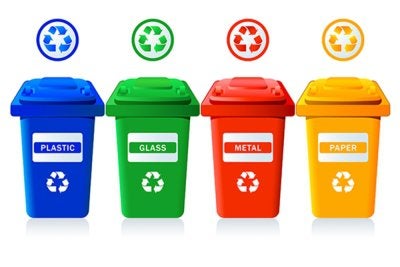
-
Universal Waste Recycling: Get the Facts
When people have fluorescent bulbs or electronics to dispose of, they may not realize that these objects do not belong in landfills. Universal waste recycling serving Atlanta offers manufacturers and businesses a way to properly dispose of a variety of hazardous materials.

The Nature of Universal Waste Recycling
The EPA’s universal waste program promotes the responsible collection and recycling of particular types of waste that contain certain hazardous materials. The program helps ensure that fewer of these materials end up in landfills where they are unregulated and can contaminate the environment.
The Importance of Universal Waste Recycling
Universal waste recycling systems make it easier for consumers and retailers to dispose of and transport these materials. Universal waste recycling is designed to streamline the waste disposal management standards for certain types of materials. These programs help to protect the local population and wildlife from the harmful effects that improper hazardous waste disposal may cause. When you choose to properly discard universal waste materials, you help keep toxins like mercury from leaking into the ecosystem. Additionally, because the mercury inside these objects can frequently be recycled and reused, this prevents the need for obtaining as many new resources from the environment.
The Guidelines for Universal Waste Recycling
The universal waste program applies to four types of waste: pesticides, batteries, mercury lamps, and mercury-containing equipment. Companies that participate in the program can be either small or large quantity handlers of universal waste, universal waste transporters, or universal waste destination facilities.
The Use of Universal Waste Recycling
By knowing the importance of proper waste disposal, you can help do your part to protect the environment and your community. Consumers, businesses, manufacturers, distributors, and retailers should all be aware of the strict guidelines that are in place for the disposal of hazardous materials and seek the necessary means for their disposal. To learn more about the universal waste regulations for your area , you can visit the Environmental Protection Agency’s website.
-
Understanding the Impact of Plastic Bottle Recycling
Even if you regularly recycle near Atlanta , you may sometimes find yourself without a recycling bin nearby. Plastic bottles are among the fastest growing components of the municipal waste in America, and tossing them in the trash can have a significant impact. Watch this video to learn about the impact of plastic bottle recycling.
The Environmental Protection Agency estimates that as much as 12% of all the solid waste in the United States is plastic products. Luckily, most plastic bottles are made of a material that is easy to recycle and reuse. The plastic recycling process saves a significant amount of resources and energy compared to acquiring and processing the materials needed to make a new bottle.
-
Can Mercury Be Recycled?
While many people realize the importance of recycling their paper and plastic waste, not everyone knows that their electronics should be recycled in Atlanta as well. Items that contain mercury can and should be recycled to ensure that the mercury is properly handled and confined, and so fewer new materials need to be taken from the environment.
Watch this video to learn more about recycling mercury. When items containing mercury are improperly disposed of, they can release dangerous vapors that are harmful to people, wildlife, and the environment. If you need to get rid of an item that may contain mercury, contact a local waste disposal company to learn how you can safely discard it.
-
How Waste Analytics Can Improve Your Company’s Efficiency
Big data is transforming the ways businesses operate by changing the ways business owners and decision makers think. The more data you have, and the better able you are to decipher it, the easier it is to make decisions that will ultimately lower your operating costs and improve your bottom line. This is even true for a part of your operations you might not think much about: waste management. Applying data analytics to waste management can help you manage your waste more efficiently so you can save money while also reducing your company’s impact on the environment. Here’s a look at some of the ways your organization can benefit from waste analytics supplied by a professional waste management provider in Atlanta .
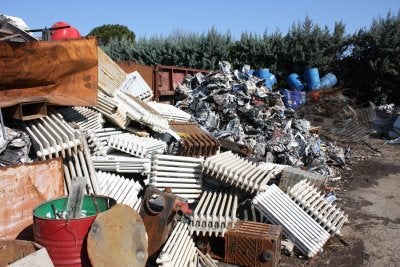
Identify Opportunities to Recycle
Data reveals a lot of things you might otherwise miss, like opportunities to reduce, reuse, and recycle materials you might be throwing away. In addition to doing good for the environment and giving your employees, customers, and shareholders something good to feel about, recycling can also save you money by reducing the amount of new materials you need to buy to replace those being thrown away.
Optimally Schedule Trash Pickups
Regular trash pickups keep your business clean and provide a sanitary environment for workers and customers alike, but too many pickups too often aren’t efficient and can end up costing you money in the long run. Waste analytics can help you schedule the right amount of pickups with your waste management provider to optimally accommodate your needs while reducing total costs.
Discover Other Ways to Save
Waste analytics will provide you with an in-depth look inside your company’s waste practices, including the type and amount of waste generated and how this waste is being disposed of. This information can help you make decisions that will reduce your total waste output, implement an effective recycling protocol, and other eco-friendly (and budget-friendly) practices.
-
Tips for Reducing Your Commercial Waste Management Costs
If you are finding that your business’s waste management program is a significant part of your budget, it may be time to work with waste professionals to determine how you can cut your overall costs. With proper trash removal and effective recycling, you can ensure that your waste management program is an affordable and sustainable part of your business. A company offering waste management and recycling serving Atlanta will be able to help you revamp your overall waste management strategy. To help you get started, here is a look at some handy tips for reducing your commercial waste management costs.
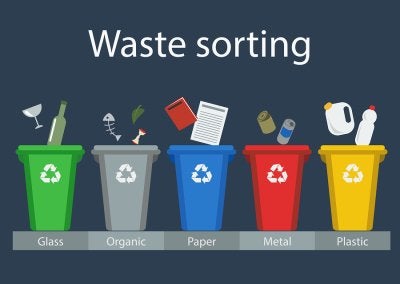
Evaluate Your Waste
One of the best ways to cut back on your waste management costs is to evaluate how much waste your company is generating on a daily or monthly basis. If you are disposing of objects or items that could be reused, you may be throwing money away. By embarking on a full evaluation of your waste production, you may be able to save money on supplies and waste management in the long run.
Consider Recycling
In order to help cut back on your waste management costs, you may also want to consider making recycling a stronger part of your waste management program. When you recycle, you will be putting valuable materials back into use. In addition, recycling is typically more affordable than renting a dumpster or making repeated trips to the landfill. Boosting your recycling efforts is a great strategy for reducing your waste management costs.
Ask About Dumpster Rentals
If you have a large quantity of waste that needs disposal, you may want to consider dumpster rentals for your waste disposal needs. A quality and affordable dumpster rental will provide you with the perfect location for dumping larger amounts of trash. With the assistance of a company that specializes in dumpster rentals in your local area, you can choose a dumpster that is the right size for your needs.
-
Exploring the Components of an Effective Waste Management Plan
As the owner of a commercial business or industrial factory, waste management is probably near the top of your list of concerns. With proper waste management , you can conserve important materials, while also ensuring that your waste is properly eliminated. A company that specializes in recycling and waste near Atlanta can help you get started on a waste management plan for your commercial business. A team of waste management professionals can answer your questions about the dos and don’ts of proper waste management. Read on for a closer exploration of an effective waste management plan.
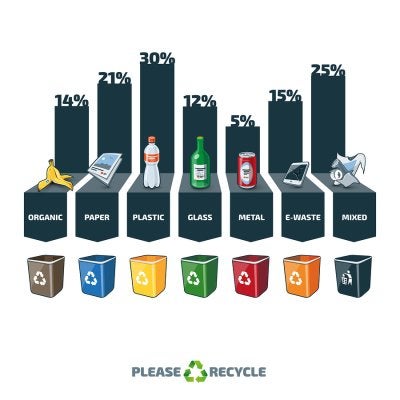
Sustainable Materials Management
When you are creating an effective waste management plan for your business, you will want to consider how you are managing your sustainable materials. During the production process, many materials may be used and discarded that can be seen as sustainable resources for your business. By structuring the way that you reduce and reuse, you can go a long ways towards improving your waste management.
An Effective Plan or Strategy
Effective waste management requires ongoing planning and strategizing on behalf of every member of your staff. When you are revamping your waste management plan, it is a great idea to take the time to outline your waste management objectives or goals. With a clearly outlines plan, you can ensure that your waste management goals are being met. Additionally, you may want to create planning cycles that will allow you to evaluate your waste management strategies at key intervals.
Collaboration and Worker Participation
Finally, an effective waste management strategy will include the willing participation of every member of your team of staff. By getting everyone on board for your waste management plan, you can rest assured that your waste strategies are being implemented on a daily basis. By encouraging all of your employees to get involved, you will be able to launch a waste management program that is a total success for your business.
RECENT POSTS
categories
- Uncategorized
- Waste Management Atlanta
- Waste Disposal and Recycling
- Hazardous Waste Disposal
- Chemical waste removal
- solid waste removal
- R3 Program
- Sustainable Organizations
- Sustainable Waste Removal
- Commercial Waste Removal
- Materials Management Program
- Dumpster Rental
- Roll Off Dumpsters
- Construction Site Waste Removal
- Sustainability
- Recycling in Atlanta
- Industrial Recycling
- Industrial Waste Removal Services
- Southern Waste & Recycling
- Waste Removal Atlanta
- Waste Specialists
- Atlanta
- Infographic
- Front Load Dumpsters
- Rear Load Dumpsters
- Reusable Electronics
- Dump Truck Atlanta
- Recyclable Electronics
- Trash Compactors
- Recycling
- Recycling Program
- Office Recycling
- Metal Recycle
- Electronic Waste
